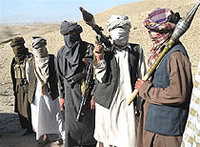Reports surfaced this week that the Quetta Shura of the Afghan Taliban has agreed to commence negotiations with the government of Afghan President Hamid Karzai in an effort to reach a political settlement to the conflict in Afghanistan. The development, reportedly the result of intensive lobbying by Saudi Arabia, raises the question of whether any sort of workable Afghan power-sharing deal is possible.
Some opinion polling data from Pashtun-dominated provinces in Afghanistan suggest that there is popular support for reaching such an arrangement. But could the United States accept a negotiated end to the fighting that includes some degree of Taliban participation in the government of Afghanistan?
Washington might be able to live with a deal that left in place the broad parameters of the Afghan political settlement brokered and endorsed by the United States after the 2001 Bonn Conference, accompanied by a narrative emphasizing that "former Taliban elements" had been "reconciled" with the "legitimate" Afghan government. Ideally, the Taliban itself would cease to exist, perhaps to be reconstituted as a "national religious party," to give the appearance of a new political movement taking shape within the current Afghan political environment, as opposed to the "former regime" coming back to share power. This would allow current Taliban members to enter the Afghan government at both the national and regional levels. If accompanied by a complete cessation of efforts to overthrow the current regime, it would also allow the United States to claim that the outcome of the Afghan war was a success.

